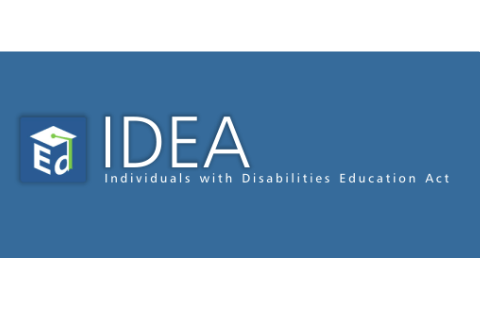Ask Kathy: A Great IDEA

From Kelsey:
Do you think there will ever be a time when everyone will acknowledge people with disabilities as human beings with inclusive rights without making comments that hurt, demean, or disrespect them? My school is currently including those with disabilities within all general education classes, but I still find comments being made that don't necessarily approve of this decision.
Kelsey, thank you for this question. The Individuals with Disabilities Education Act (IDEA) was originally known as the Education of Handicapped Children Act passed in 1975. So, a free and appropriate education for students with disabilities is not a new idea. There have been several amendments made since then and the last amendments were passed in 2015. The IDEA guarantees that children with disabilities will receive a public education that includes special education and related services as directed by the child's Individualized Education Program (IEP), based on the child's individual needs.
My point in mentioning this is that IDEA is a Federal Law that promises students with disabilities the right to a public school education. I think all schools should hang posters printed with this important declaration:
Disability is a natural part of the human experience and in no way diminishes the right of individuals to participate in or contribute to society. Improving educational results for children with disabilities is an essential element of our national policy of ensuring equality of opportunity, full participation, independent living, and economic self-sufficiency for individuals with disabilities.
Individuals with Disabilities Education Act
I can feel your frustration but, if you raise the bar for students with disabilities and they have the opportunity to learn and grow alongside their peers, they will achieve their educational goals. It is important to remember that diverse learners within a school community are not only learners but teachers who offer valuable lessons of empathy and acceptance. Teachers who make negative remarks about students who have learning challenges most likely do it out of fear. Fear that they cannot meet the needs of students who need extra help while also meeting the needs of students who need to be challenged.
This is where Universal Design for Learning (UDL) comes in, because if you design lesson plans for students who need to be challenged and those who need a little help, you will inevitably meet the needs of those students who fall somewhere in the middle. The truth is there is no such thing as an average learner. It’s important to allow students to make choices about how and what they learn. Teaching to their strengths is also very important. The focus of UDL is to help students become motivated, independent problem solvers who are lifelong learners. This is a big investment of time and energy for teachers initially, but once the basics are established, it will be easier for all students to succeed. If you would like to learn more about Universal Design for Learning then check out my blog, UDL- Helping All Students Reach Their Full Potential.
Change may be taking a lot longer than we would like, but things are getting better. Attitudes can only improve through education and positive experiences in our classrooms and communities. So, I guess we have to keep working on it. Just remember, the law is on our side.